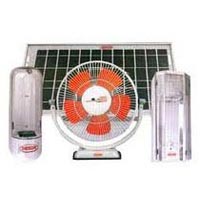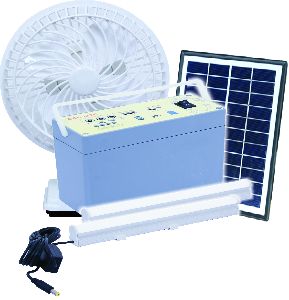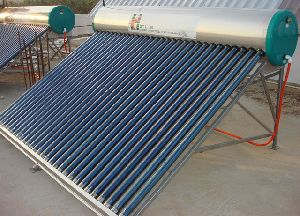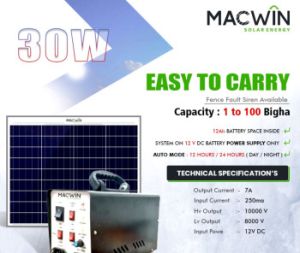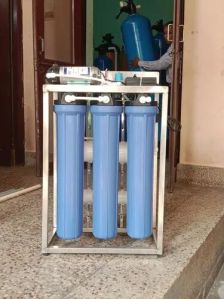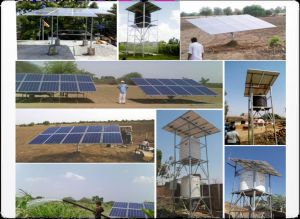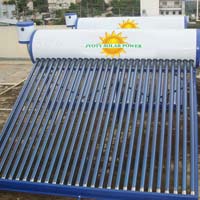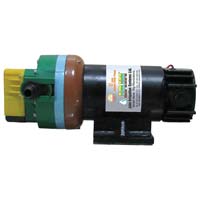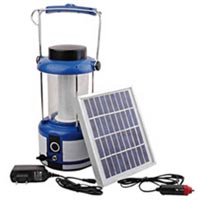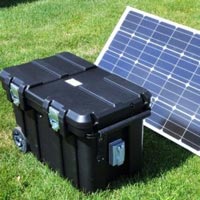Listing ID #4250542
Company Information
Ask for more detail from the seller
Contact SupplierThere are three general families of photovoltaic (PV) solar panels on the market today. They are single crystal silicon, polycrystalline silicon, and thin film. This article will help you to understand the differences that are relevant to the system designer and owner.
Monocrystalline (also called Single Crystal) vs. Polycrystalline
Monocrystalline and Polycrystalline represent the “traditional” technologies for solar panels. They can be grouped into the category “crystalline silicon”.
Monocrystalline, or Single Crystal, is the original PV technology invented in 1955, and never known to wear out. Polycrystalline entered the market in 1981. It is similar in performance and reliability. Single crystal modules are composed of cells cut from a piece of continuous crystal. The material forms a cylinder which is sliced into thin circular wafers. To minimize waste, the cells may be fully round or they may be trimmed into other shapes, retaining more or less of the original circle. Because each cell is cut from a single crystal, it has a uniform color which is dark blue.
Polycrystalline cells are made from similar silicon material except that instead of being grown into a single crystal, they are melted and poured into a mold. This forms a square block that can be cut into square wafers with less waste of space or material than round single-crystal wafers. As the material cools, it crystallizes in an imperfect manner, forming random crystal boundaries. The efficiency of energy conversion is slightly lower. This merely means that the size of the finished module is slightly greater per watt than most single crystal modules. The cells look different from single crystal cells. The surface has a jumbled look with many variations of blue color. In fact, they are quite beautiful like sheets of gemstone.
In addition to the above processes, some companies have developed alternatives such as ribbon growth and growth of crystalline film on glass. Most crystalline silicon technologies yield similar results, with high durability. Twenty-five-year warranties are common for crystalline silicon modules. Single crystal tends to be slightly smaller in size per watt of power output, and slightly more expensive than polycrystalline.
The construction of finished modules from crystalline silicon cells is generally the same, regardless of the technique of crystal growth. The most common construction is by laminating the cells between a tempered glass front and a plastic backing, using a clear adhesive similar to that used in automotive safety glass. It is then framed with aluminum.
The silicon used to produce crystalline modules is derived from sand. It is the second most common element on earth, so why is it so expensive? The answer is that, in order to produce the photovoltaic effect, it must be purified to an extremely high degree. Such pure “semiconductor grade” silicon is very expensive to produce. It is also in high demand in the electronics industry because it is the base material for computer chips and other devices. Crystalline solar cells are about the thickness of a human fingernail. They use a relatively large amount of silicon.
Thin Film Technologies
Imagine if a PV cell was made with a microscopically thin deposit of silicon, instead of a thick wafer. It would use very little of the precious material. Now, imagine if it was deposited on a sheet of metal or glass, without the wasteful work of slicing wafers with a saw. Imagine the individual cells deposited next to each other, instead of being mechanically assembled. That is the idea behind thin film technology. (It is also called amorphous, meaning “not crystalline”.) The active material may be silicon, or it may be a more exotic material such as cadmium telluride.
Thin film panels can be made flexible and light weight by using plastic glazing. Some flexible panels can tolerate a bullet hole without failing. Some of them perform slightly better than crystalline modules under low light conditions. They are also less susceptible to power loss from partial shading of a module.
The disadvantages of thin film technology are lower efficiency and uncertain durability. Lower efficiency means that more space and mounting hardware is required to produce the same power output. Thin film materials tend to be less stable than crystalline, causing degradation over time. The technology is being greatly improved, however, so I do not wish to generalize in this article. We will be seeing many new thin film products introduced in the coming years, with efficiency and warranties that may approach those of crystalline silicon.
PV experts generally agree that crystalline silicon will remain the “premium” technology for critical applications in remote areas. Thin film will be strong in the “consumer” market where price is a critical factor. As usual, you get what you pay for.
At Wholesale Solar, we will be happy to help find the products that are right for you. For pricing and product information give us a call. We’ll also answer any questions you might have about your system.
Thin film panels can be made flexible and light weight by using plastic glazing. Some flexible panels can tolerate a bullet hole without failing. Some of them perform slightly better than crystalline modules under low light conditions. They are also less susceptible to power loss from partial shading of a module.
The disadvantages of thin film technology are lower efficiency and uncertain durability. Lower efficiency means that more space and mounting hardware is required to produce the same power output. Thin film materials tend to be less stable than crystalline, causing degradation over time. The technology is being greatly improved, however, so I do not wish to generalize in this article. We will be seeing many new thin film products introduced in the coming years, with efficiency and warranties that may approach those of crystalline silicon.
PV experts generally agree that crystalline silicon will remain the “premium” technology for critical applications in remote areas. Thin film will be strong in the “consumer” market where price is a critical factor. As usual, you get what you pay for.
At Wholesale Solar, we will be happy to help find the products that are right for you. For pricing and product information give us a call. We’ll also answer any questions you might have about your system.


